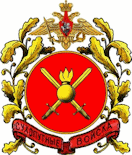Military Transport - Recent History
 In the period since November 30, 1994. until January 1, 1997, with the conducting by the limited contingent of the Russian troops together with the internal and border forces of operation on the disarmament of the illegal armed units in Chechnya for purposes of the restoration of constitutional order the personnel of military transport service [VS] RF carried out the tasks of government for the organization of military transportation into the Chechen republic.
In the period since November 30, 1994. until January 1, 1997, with the conducting by the limited contingent of the Russian troops together with the internal and border forces of operation on the disarmament of the illegal armed units in Chechnya for purposes of the restoration of constitutional order the personnel of military transport service [VS] RF carried out the tasks of government for the organization of military transportation into the Chechen republic.
After the formulation of the problems by Minister of Defense RF for conducting of operation, TsUP VOSO MO RF, working in the conditions limited on the time, operationally with MPS it approached the fulfillment of preparatory measures. As a result forced service TsUP VOSO MO RF was prepared and represented in the assertion of chief of the General Staff [VS] RF the plan of military transportation. For the fulfillment of this plan the complex of organizational and technical measures was carried out.
The staff of the command of the united group of the troops in Chechnya was provide ford with comprehensive information about the bringing up of reserves and their position, composition and time of arrival into the stations of destination. Entire volume of transportation is executed within the assigned periods, which is caused by reaching high speeds on the routes of transportation, by precise and coordinated interaction of organs VOSO and MPS RF at all levels of control.
In all within entire period of conducting operation were transported 209 military trains, about 7 thousand railroad cars, furthermore, were delivered 3477 military transports, about 18 thousand railroad cars with the ammunition, by armament, by military equipment and by other supplies. The experience of the troop movement to Chechnya and the organization of their comprehensive guarantee again showed that rail transport is most important with the preparation and in the course of conducting both the large-scale military operations and with the accomplishment of specific objectives.
After preserving united organizational structure and system of control, rail transport preserved its potential possibilities on the fulfillment of mass military transportation within the shortest periods, but it at present requires larger attention from the side of state. The organs of military communications, being the connecting link between transport and Defense Ministry (its plenipotentiary representatives), again showed the effectiveness of its activity, the high professional level with the solution of the problems assigned to them.
The chief for the Central Transportation Corps is a Major General. In 2008 this post was held by Boris Lvovich Svistkov. Svistkov was born on January 1, 1954 in Vyborg Leningrad region. He finished the Leningrad high command school of the railroad troops and military communications im.M.V. Frunze in 1975, the military logistics academy and transport in 1988. He served in the posts of assistant and senior assistant of the military commandant of section and station Krasnovodsk, Tashkent, the officer of the service VOSO served on the posts of assistant and senior assistant of the military commandant of section and station Krasnovodsk, served on the posts of assistant and senior assistant of the military since 1994 in the central apparatus. Since January 1995 he was the chief for the 1st administration TsUP VOSO MO RF. On 30 June 2006, by President's Decree, he was appointed as the chief for the central Transportation Corps of the RF Ministry of Defense.
The building of service VOSO includes three stages. During the first stage the buildings of service (1992 g.) are carried out basic organizational measures for the forming of military transport service [VS] RF (determined the duty station of military communications in the structure of armed forces, it is developed the normative- legal base of building and functioning of service). In the course of the second stage (1993-1995 yr.) the reorganization of service and a reduction in its number taking into account the tasks solved by the troops was conducted, the development of proposals on an increase in the vitality of communications and control of their fulfillment was accomplished. In the third stage of the building of military transport service (after 1995.) occurs the completion of the building of service and its reduction to the established number, the arrangement of the establishments of military communications for the complete guarantee of transport needs of associations, connections and parts on the new places for dislocation.
|
NEWSLETTER
|
| Join the GlobalSecurity.org mailing list |
|
|
|

